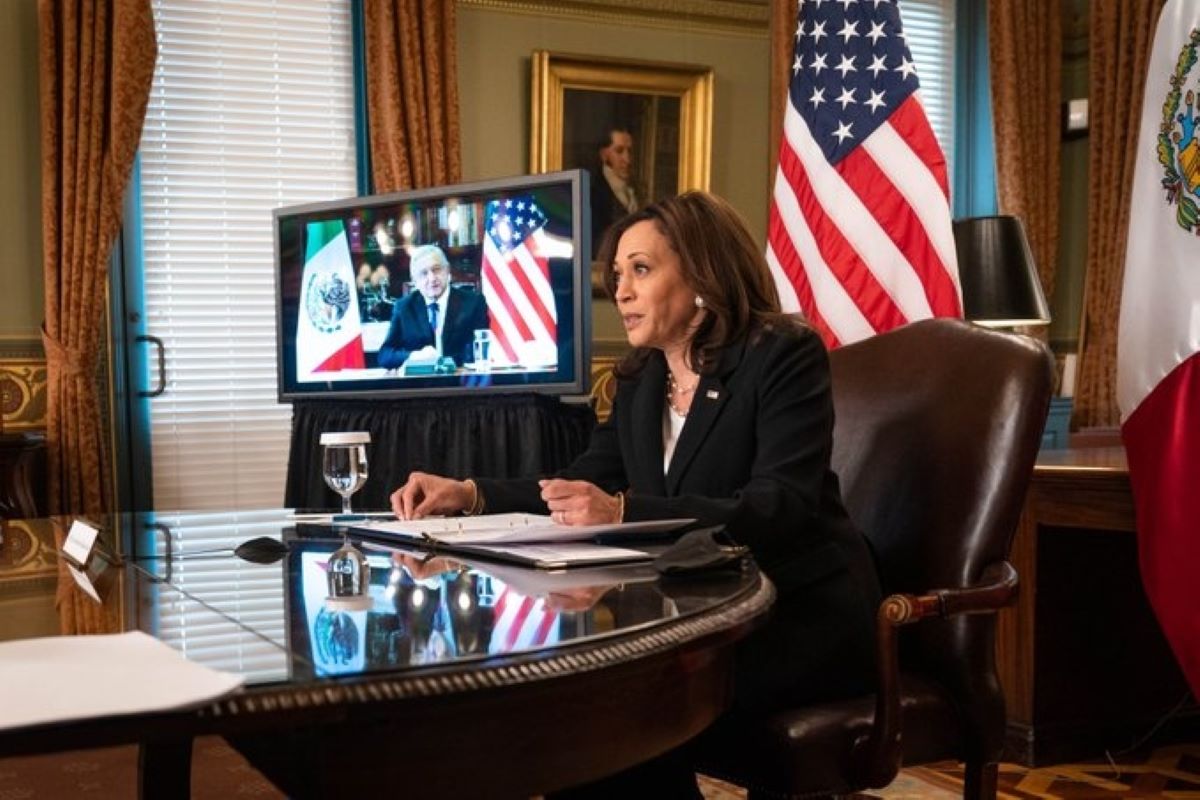Biden deepfake exposes vulnerabilities
An unknown number of New Hampshire voters received a phone call on 21 January 2024, from what sounded like President Joe Biden.
Biden praised Senate Democrats for standing together “against the ongoing assault of voter suppression that represents a Jim Crow era in the 21st Century”

Vice President Kamala Harris presided over the chamber as the bill failed to break past that filibuster barrier.
The Democrats’ sweeping attempt to rewrite US election and voting law suffered a major setback in the Senate on Tuesday.
Blocked by a filibuster wall of Republican opposition, President Joe Biden declared, “This fight is far from over.”
The bill, known as the For the People Act, encompassed every aspect of how elections are conducted, striking down hurdles to voting that advocates view as the Civil Rights fight of the era, while also curbing election malpractices through money, and limiting partisan influence over the drawing of congressional districts.
Advertisement
But many in the GOP described the measure as a breathtaking federal infringement on states’ authority to conduct their own elections without fraud – and is meant to ultimately benefit Democrats.
It failed on a 50-50 vote after Republicans, some of whom derided the bill as the “Screw the People Act,” denied Democrats the 60 votes needed to begin debate under Senate rules. Vice President Kamala Harris presided over the chamber as the bill failed to break past that filibuster barrier.
Biden praised Senate Democrats for standing together “against the ongoing assault of voter suppression that represents a Jim Crow era in the 21st Century.”
The rejection forces Democrats to reckon with what comes next for their top legislative priority in a narrowly divided Senate. They’ve touted the measure as a powerful counterweight to scores of proposals advancing in GOP-controlled statehouses making it more difficult to vote.
“Once again, the Senate Republican minority has launched a partisan blockade of a pressing issue,” Senate Majority Leader Chuck Schumer said from the chamber floor. He vowed that the vote was the “starting gun” and not the last time voting rights would be up for debate.
The filibuster might have been a foregone tactic since the Democrats deployed the same tool during the Trump presidency to block consideration of the bill.
Republicans showed no sign of yielding.
Republican leader Mitch McConnell called the bill a “a solution looking for a problem” and vowed to “put an end to it.” Texas Sen. Ted Cruz dismissed it as “partisan legislation, written by elected Democrats, designed to keep elected Democrats in office.”
And, more graphically, Sen. Shelley Moore Capito called the bill “a despicable, disingenuous attempt to strip states of their constitutional right to administer elections” that “should never come close to reaching the president’s desk.”
Pressure has been mounting on Democrats to change Senate rules or watch their priorities languish. A group of moderate Democratic senators, however, including Sens. Joe Manchin and Kyrsten Sinema, have ruled that out, denying the votes needed to make a filibuster change.
Biden has vowed what the White House calls the “fight of his presidency” over ensuring Americans’ access to voting. But without changes to Senate rules, key planks of his agenda, including the voting bill, appear stalled.
As the Senate discussion churns, more changes could be coming to the bill.
Democrats want to protect against intimidation at the polls in the aftermath of the 2020 election. They propose enhancing penalties for those who would threaten or intimidate election workers and creating a “buffer zone” between election workers and poll watchers, among other possible changes.
They also want to limit the ability of state officials to remove local election officials.
But Democrats have divisions of their own. Until Tuesday, it wasn’t even clear that they would be united on the vote to bring the bill up for debate.
Sen. Lisa Murkowski, a moderate Alaska Republican, said some aspects of the Democratic bill were laudable and she supports other voting rights legislation, like a reinstatement of the Voting Rights Act struck down by the Supreme Court in 2013.
But, ultimately, she said the “sprawling” bill amounted to “a one-size-fits-all mandate coming out of Washington D.C.” that “in many cases doesn’t work.”
State officials who certified the results of the 2020 election have dismissed Trump’s claims of voter fraud, and judges across the country have thrown out multiple lawsuits filed by Trump and his allies. Trump’s own attorney general said there was no evidence of widespread fraud that would change the outcome.
Advertisement